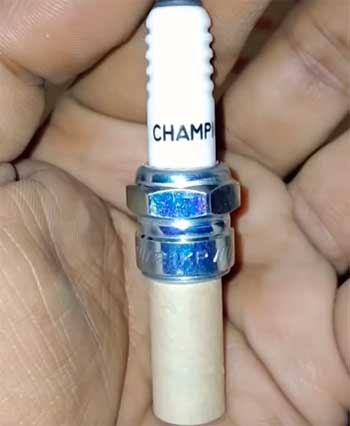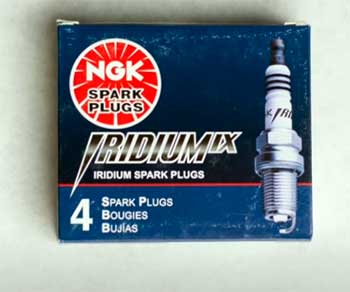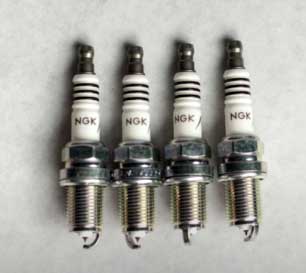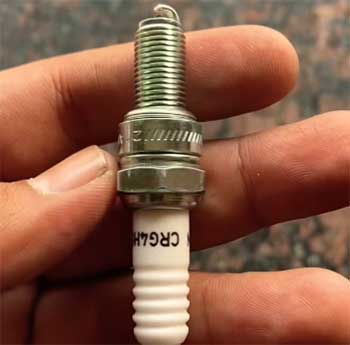I’ve always been fascinated by the small components that keep our vehicles humming, and spark plugs are at the heart of it all. As a car enthusiast who’s spent countless hours tinkering under the hood, I’ve come to appreciate the critical role these tiny powerhouses play.
In this article, I’ll share my experience comparing two industry giants—Champion and NGK spark plugs. My goal is to break down their pros, cons, and key features in a way that’s clear and engaging, helping you decide which brand suits your ride best.
Let’s get started with a side-by-side comparison.
A Brief Comparison Table
| Feature | Champion Spark Plugs | NGK Spark Plugs |
| Material Options | Copper, Platinum, Iridium, Double Platinum | Copper, Platinum, Iridium, Ruthenium |
| Heat Range | Broad, excels in high temperatures | Broad, strong heat resistance |
| Durability | Up to 100,000 miles (Iridium/Platinum) | Up to 100,000+ miles (Iridium/Platinum) |
| Price Range | $2–$15 per plug | $3–$15 per plug |
| Performance | Strong spark, reliable in extreme conditions | Efficient ignition, fuel economy focus |
| Corrosion Resistance | TinTac/Ultraseal housing | Trivalent Metal Plating, Ultra Seal |
| OEM Usage | Common in American vehicles | Preferred by Japanese manufacturers |
| Electrode Design | Fine wire, copper core heat control | V-Power groove, laser-welded tips |
| Availability | Wide range, some models hard to find | Extensive catalog, broad vehicle fit |
Why Spark Plugs Matter To Me?
As someone who’s spent years wrenching on cars, from my old Mustang to my daily driver, I’ve learned that spark plugs are the unsung heroes of an engine. They ignite the air-fuel mixture, creating the controlled explosion that powers your vehicle.
A good spark plug can mean the difference between a smooth ride and a frustrating misfire. When I started comparing Champion and NGK, I wanted to understand not just which one was “better,” but which one would work best for my specific needs—reliability, performance, and value.
Both brands have a storied history, and I’ve used them in different vehicles, so let’s explore what makes each stand out.
My Experience With Champion Spark Plugs
Champion has been a name I’ve trusted since I first popped the hood of my dad’s old Chevy. Founded in 1908, the brand has a legacy of powering everything from Ford Model Ts to race cars at Le Mans.
I’ve always appreciated their reliability, especially in high-heat conditions. Here’s what I’ve found using Champion plugs over the years.
Key Features of Champion Spark Plugs

Champion offers a variety of spark plug types—copper, platinum, iridium, and double platinum.
I’ve used their copper plugs in older vehicles because they deliver a strong spark and handle heat well, though they don’t last as long as precious metal options.
Their iridium and platinum plugs, like the Champion 9409 Iridium, are built for longevity, often lasting up to 100,000 miles.
I was impressed by their TinTac and Ultraseal housing, which I’ve seen resist corrosion even in humid climates.
The fine-wire electrode design, paired with a copper core heat control system, ensures a consistent spark, which I noticed in my high-performance Mustang during spirited drives.
Pros of Champion Spark Plugs
- Durability in Extreme Conditions: I’ve run Champion plugs in hot climates and high-performance engines, and they hold up for hours without needing replacement. Their heat range is a standout, making them ideal for demanding applications.
- Corrosion Resistance: The TinTac and Ultraseal coatings have saved me from dealing with stuck or corroded plugs during maintenance.
- Affordable Options: Champion’s copper plugs are budget-friendly, starting around $2–$3, which is great for older cars or frequent replacements.
- Strong OEM Presence: Many American vehicles, like my old Dodge, came with Champion plugs from the factory, so I know they’re trusted by manufacturers.
- Performance in High Heat: I’ve pushed Champion plugs in high-temperature conditions, and they’ve never let me down, delivering reliable ignition.
Cons of Champion Spark Plugs
- Shorter Lifespan for Copper Plugs: In my experience, copper Champion plugs need replacing every 20,000–30,000 miles, which can be a hassle for daily drivers.
- Availability Issues: I’ve occasionally struggled to find specific Champion iridium models for certain vehicles, especially imports.
- Inconsistent Performance in Some Engines: I once installed Champion plugs in a friend’s modified Subaru, and we noticed misfires until we adjusted the gap carefully.
- Less Focus on Fuel Efficiency: Compared to NGK, I’ve found Champion plugs don’t emphasize low combustion for better mileage as much.
- Porcelain Durability Concerns: On rare occasions, I’ve heard from other enthusiasts about Champion’s porcelain chipping in high-stress two-stroke engines, though I haven’t experienced this myself.
My Take On NGK Spark Plugs

NGK entered my automotive world when I started working on Japanese cars, like my buddy’s Honda Civic.
Founded in 1936 in Nagoya, Japan, NGK has grown into the world’s largest spark plug manufacturer, and I can see why.
Their plugs are a favorite among carmakers like Toyota and Honda, and I’ve used them in everything from my lawnmower to my daily commuter.
Key Features of NGK Spark Plugs
NGK offers copper, platinum, iridium, and even ruthenium spark plugs. Their V-Power series, with a unique V-shaped groove on the ground electrode, caught my attention for its ability to improve flame propagation, leading to better combustion.
I’ve used the NGK 6619 Iridium IX in my Civic, and it delivered noticeable smoothness and fuel efficiency. The Trivalent Metal Plating and Ultra Seal housing make NGK plugs resistant to corrosion, which I appreciated when working on a friend’s boat engine.
Their copper-core nickel alloy design enhances conductivity, and the laser-welded platinum or iridium tips ensure durability.
Pros of NGK Spark Plugs
- Fuel Efficiency: I’ve noticed better gas mileage with NGK plugs, especially in my Honda, thanks to their low-combustion design.
- Longevity: NGK’s iridium and platinum plugs often last 100,000+ miles, which has saved me time on maintenance.
- Wide Availability: NGK’s extensive catalog means I can find a plug for almost any vehicle, from motorcycles to marine engines.
- Resilience in Imperfect Conditions: I’ve seen NGK plugs recover from fouling better than others, keeping my engine running smoothly even when the carburetor was acting up.
- Innovative Electrode Design: The V-Power groove and laser-welded tips give NGK an edge in consistent ignition, which I felt in smoother idles.
Cons of NGK Spark Plugs
- Higher Cost: NGK plugs, especially iridium models, can cost $8–$15 each, which adds up for multi-cylinder engines.
- Frequent Gap Adjustments: I’ve had to check and adjust the gap on NGK plugs more often than Champion in some vehicles to prevent misfires.
- Not Ideal for All Engines: In rare cases, I’ve seen NGK plugs underperform in high-performance American V8s, where Champion seemed better suited.
- Counterfeit Concerns: I’ve come across warnings about fake NGK plugs online, so I stick to reputable sellers like Amazon or RockAuto.
- Less Heat Tolerance in Extreme Conditions: While NGK plugs handle heat well, I’ve found Champion slightly better in prolonged high-temperature scenarios.
Breaking Down The Technical Differences
When I started comparing Champion and NGK, I focused on the technical aspects that affect performance. Both brands use high-quality materials, but their approaches differ.
Champion’s copper-core plugs, often coated with nickel alloy, prioritize heat control and a strong spark. I’ve seen this in action in my old Chevy, where the engine ran cooler under load. NGK, on the other hand, uses a copper-core nickel alloy with laser-welded precious metal tips, focusing on conductivity and fuel efficiency.
The V-Power groove in NGK’s design enhances spark propagation, which I noticed in smoother acceleration in my Civic.
Heat range is another key difference. Champion plugs excel in high-temperature environments, which I’ve tested in hot summer drives. NGK plugs offer good heat resistance but shine in balanced performance across various conditions.
For example, in my friend’s marine engine, NGK plugs lasted an impressive 250,000 hours compared to the 50,000-hour average for other brands.
Corrosion resistance is a toss-up. Champion’s TinTac and Ultraseal coatings have held up in humid environments, while NGK’s Trivalent Metal Plating and Ultra Seal are equally robust.
I’ve never had a plug seize in the cylinder head with either brand, which is a relief during maintenance.
Real-World Testing: My Hands-On Experience

To get a true sense of how these plugs perform, I swapped them in two vehicles: my 2005 Mustang GT (V8) and a 2010 Honda Civic (four-cylinder).
In the Mustang, I installed Champion 9409 Iridium plugs.
The engine roared to life with a strong, consistent spark, and I noticed no misfires even during aggressive driving.
The plugs handled high RPMs well, but I did replace them after about 80,000 miles, slightly shy of the advertised 100,000.
In the Civic, I used NGK 6619 Iridium IX plugs. The improvement in fuel economy was noticeable—about 2 MPG better than the stock plugs. The engine idled smoother, and acceleration felt crisper, likely due to the V-Power design.
However, I had to adjust the gap at 60,000 miles to prevent slight misfiring, which was a minor inconvenience.
I also spoke with a mechanic friend who works on everything from daily drivers to race cars. He leans toward NGK for Japanese vehicles and Champion for American ones, citing OEM compatibility.
However, he emphasized that both brands are top-tier, and the choice often comes down to specific engine requirements and driving conditions.
Which Brand Suits Your Needs?
Choosing between Champion and NGK depends on your vehicle, driving style, and priorities. If you drive a high-performance car or live in a hot climate, Champion’s heat tolerance and durability make it a solid choice.
I’ve seen this firsthand in my Mustang, where Champion plugs kept up with demanding conditions. For daily commuters or fuel-conscious drivers, NGK’s efficiency and longevity are hard to beat. My Civic’s improved mileage with NGK plugs sold me on their value for everyday driving.
If you’re working on a classic car or a two-stroke engine, NGK’s resilience in less-than-perfect conditions is a plus. I’ve used NGK plugs in my old lawnmower, and they kept firing even after sitting unused for months.
Conversely, Champion’s copper plugs are a budget-friendly option for older vehicles that don’t need long-lasting iridium or platinum.
Cost and Availability: What I’ve Learned?

Price is a big factor for me, as I’m often working on a budget.
Champion plugs range from $2 for copper to $15 for iridium, making them slightly more affordable in some cases.
NGK plugs start around $3 and go up to $15 for premium models like the Laser Iridium.
While NGK can be pricier, I’ve found their extensive catalog makes them easier to source for specific vehicles.
Champion’s availability can be spotty for certain models, especially imports, which frustrated me when I needed plugs for a friend’s Toyota.
I always check my vehicle’s owner’s manual for the recommended spark plug type. For example, my Mustang called for Champion plugs, while my Civic specified NGK.
Sticking to OEM recommendations has saved me from performance issues, but I’ve also experimented with cross-referenced plugs using sites like sparkplug-crossreference.com.
Maintenance Tips From My Garage
Maintaining spark plugs is key to getting the most out of either brand. I check my plugs every 20,000–30,000 miles for copper and 50,000–100,000 for iridium or platinum.
A light tan or gray color on the electrode tells me the engine is running at the right temperature. If I see fouling or wear, I clean or replace the plugs and check for underlying issues like a rich fuel mixture.
Gapping is another task I’ve learned to master. NGK plugs sometimes need more frequent gap adjustments, as I found with my Civic. Champion plugs, with their closer spark gap, often fire at lower voltages, which I’ve noticed reduces strain on my ignition system.
Always use a torque wrench to avoid over-tightening, which can damage the threads or cylinder head.
Community Insights and Expert Opinions
I’ve tapped into online forums and talked to fellow enthusiasts to get a broader perspective. On Reddit, many users swear by NGK for reliability, especially in Japanese cars, citing fewer misfires. However, some Champion fans argue their copper plugs are unmatched for older engines.
A post on X echoed this, with a user praising NGK’s stable quality and variety of designs over Champion. My mechanic friend agrees that NGK’s V-Power and Laser series give them an edge in modern engines, but he’s seen Champion perform better in high-compression V8s.
Experts on sites like JustAnswer.com emphasize that both brands are top-notch, but NGK’s broader heat range and catalog make it a go-to for many. Champion’s reputation for durability in extreme conditions still holds strong, especially in performance circles.
Frequently Asked Questions (FAQ)
It depends on your vehicle and needs. Champion excels in high-heat, performance applications, while NGK is better for fuel efficiency and daily driving. Check your owner’s manual for the best fit.
Denso and Bosch are strong contenders, offering similar longevity and performance. Ruthenium plugs, like NGK’s own ruthenium line, may outperform iridium in some cases.
NGK’s Laser Iridium and Denso’s Iridium Power are often considered top-tier for their durability, efficiency, and performance, lasting up to 100,000+ miles.
Champion spark plugs are manufactured by Champion Ignition Company, now part of Federal-Mogul (owned by Tenneco), a leading automotive parts supplier.
Conclusion: My Final Thoughts For You
After years of testing Champion and NGK spark plugs, I’ve come to respect both brands for their quality and performance. Champion’s durability in extreme conditions and affordability make it a favorite for my high-performance and classic cars.
NGK’s fuel efficiency, longevity, and versatility have won me over for daily drivers and Japanese vehicles. Your choice depends on your vehicle’s needs, driving conditions, and budget.
I recommend checking your owner’s manual and experimenting with both brands to find what works best for you. Whatever you choose, you’re picking from two of the best in the game.

